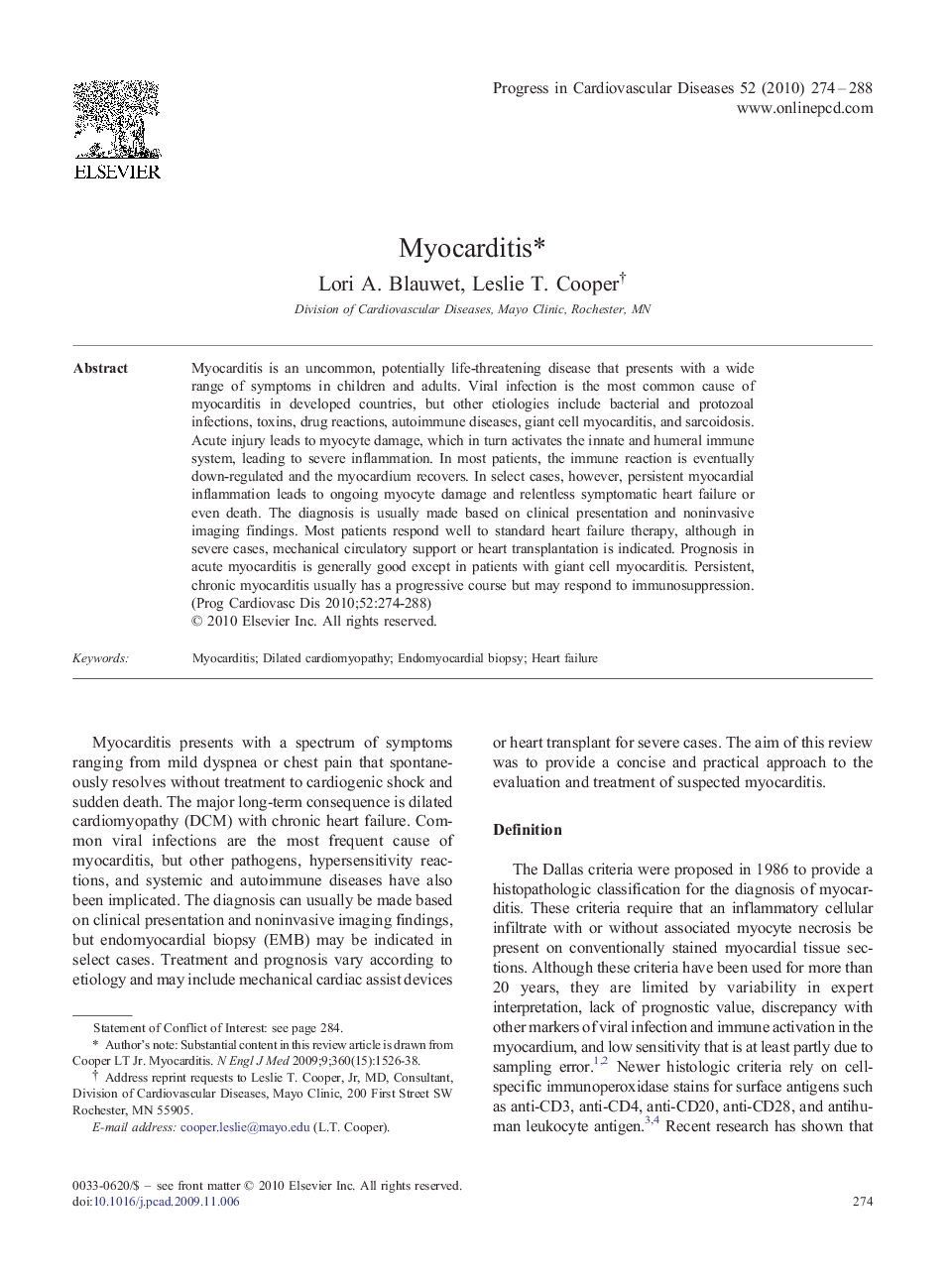| Article ID | Journal | Published Year | Pages | File Type |
|---|---|---|---|---|
| 3006583 | Progress in Cardiovascular Diseases | 2010 | 15 Pages |
Myocarditis is an uncommon, potentially life-threatening disease that presents with a wide range of symptoms in children and adults. Viral infection is the most common cause of myocarditis in developed countries, but other etiologies include bacterial and protozoal infections, toxins, drug reactions, autoimmune diseases, giant cell myocarditis, and sarcoidosis. Acute injury leads to myocyte damage, which in turn activates the innate and humeral immune system, leading to severe inflammation. In most patients, the immune reaction is eventually down-regulated and the myocardium recovers. In select cases, however, persistent myocardial inflammation leads to ongoing myocyte damage and relentless symptomatic heart failure or even death. The diagnosis is usually made based on clinical presentation and noninvasive imaging findings. Most patients respond well to standard heart failure therapy, although in severe cases, mechanical circulatory support or heart transplantation is indicated. Prognosis in acute myocarditis is generally good except in patients with giant cell myocarditis. Persistent, chronic myocarditis usually has a progressive course but may respond to immunosuppression.
